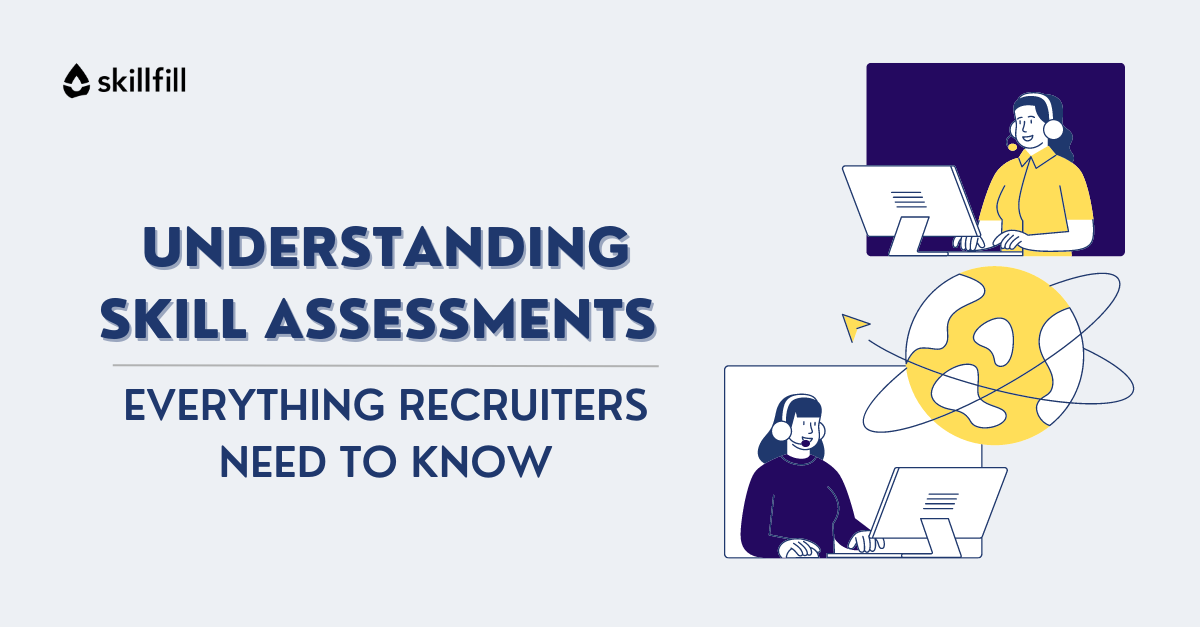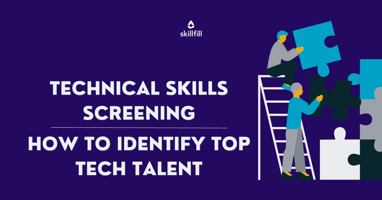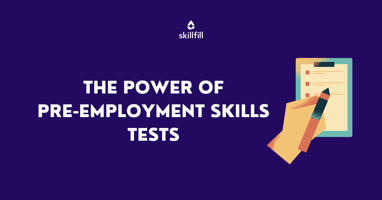As technology continues to evolve at an unprecedented rate, the demand for skilled tech...
Understanding Skill Assessments - Everything Recruiters Need to Know
Finding the right candidate for a job can be a challenging task for recruiters. A resume and cover letter can give a glimpse of a candidate's qualifications, but they do not necessarily reflect their ability to perform the job. Skill assessments can help recruiters to assess a candidate's proficiency in relevant skills before they are hired. In this article, we will explore how skill assessments work for recruiters and their importance in the hiring process.
Furthermore, recruiters face the challenge of finding the right candidate from a large pool of applicants with diverse backgrounds and qualifications. Skill assessments also provide a solution to this problem by evaluating a candidate's proficiency in relevant skills.

What are Skill Assessments?
Skill assessments are tests that measure a candidate's proficiency in specific skills required for a job. They can be used to assess cognitive abilities, technical skills, behavioral skills, or a combination of these. Skill assessments are typically administered before a candidate is hired to ensure that they have the necessary skills to perform the job.
Types of Skill Assessments
Skill assessments can be divided into three main categories: cognitive ability tests, technical skills tests, and behavioral skills tests.
- Cognitive ability tests: they measure a candidate's ability to think, reason, and solve problems. These tests can evaluate a candidate's verbal, numerical, and spatial abilities. Cognitive ability tests are especially useful for positions that require complex problem-solving skills, such as finance.
- Technical skills tests: measure a candidate's proficiency in specific technical skills required for a job. These tests can evaluate a candidate's knowledge of programming languages, software applications, or hardware systems. Technical skills tests are especially useful for positions that require specialized technical knowledge, such as IT or engineering.
- Behavioral skills tests: measure a candidate's interpersonal skills, such as communication, teamwork, and leadership. These tests can evaluate a candidate's ability to work with others, adapt to changing situations, and handle conflict. Behavioral skills tests are especially useful for positions that require strong interpersonal skills, such as sales or management.
Benefits of Skill Assessments for Recruiters
Skill assessments offer several benefits for recruiters, including time and cost efficiency, objective evaluation, and improved candidate experience.
Time and Cost Efficiency
Skill assessments can save recruiters time and money by providing a quick and objective evaluation of a candidate's skills. This can help to streamline the hiring process and reduce the need for multiple rounds of interviews or assessments.
Objective Evaluation
Skill assessments provide an objective evaluation of a candidate's skills, which can help to reduce bias in the hiring process. By using standardized tests, recruiters can evaluate all candidates fairly and consistently.
Improved Candidate Experience
Skill assessments can also improve the candidate experience by providing them with a clear understanding of the skills required for the job. This can help to reduce anxiety and uncertainty during the hiring process.
Implementation of Skill Assessments
Skill assessments can be implemented at various stages of the hiring process. They can be administered online or in person, and they can be timed or untimed. Recruiters can choose to administer skill assessments to all candidates or only to those who pass the initial screening.
Skill assessments can be customized to fit the specific requirements of a job. Recruiters can select from a variety of assessment options or create their own. They can also choose to use off-the-shelf assessments, which are standardized tests designed for specific skills or industries.
Common Challenges and Best Practices
Despite their benefits, skill assessments also present some challenges for recruiters. Some common challenges include ensuring the validity and reliability of the assessments, minimizing bias, and ensuring that the assessments comply with legal requirements.
To address these challenges, recruiters can follow some best practices. For example, they can use validated and reliable assessments, ensure that the assessments are job-related, and provide clear instructions and feedback to candidates.
Legal Considerations
Recruiters must also ensure that their skill assessments comply with legal requirements. These guidelines ensure that the assessments do not discriminate against candidates based on their race, gender, age, or other protected characteristics.
Recruiters must also obtain the candidate's consent before administering skill assessments. They must provide candidates with clear instructions on how to complete the assessments and inform them of their rights.
Skillfill.ai skill assessments take care of all of these aspects so that recruiters and companies do not need to worry about it.
Future of Skill Assessments
The use of skill assessments is expected to grow in the future, as technology advances and the demand for specialized skills increases. Online skill assessments and simulations are becoming increasingly popular, as they provide a more interactive and immersive experience for candidates. Tools such as skillfill.ai allow recruiters to quickly understand the technical skills of candidates, saving time to focus on the person behind the CV.
ASSESS TECH TALENT BEYOND CVs
Start today your 14-day free-trial and identify the best tech talent to join your team.



